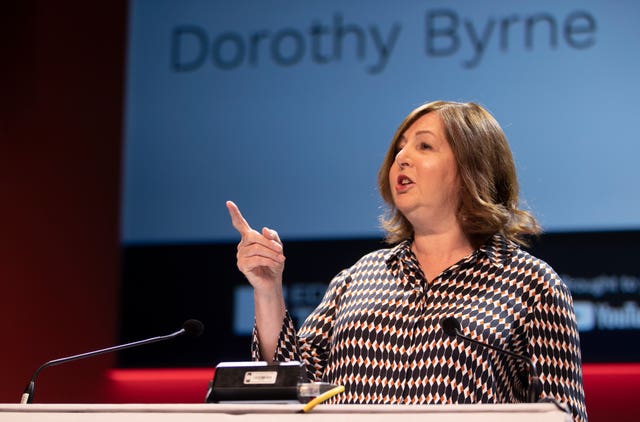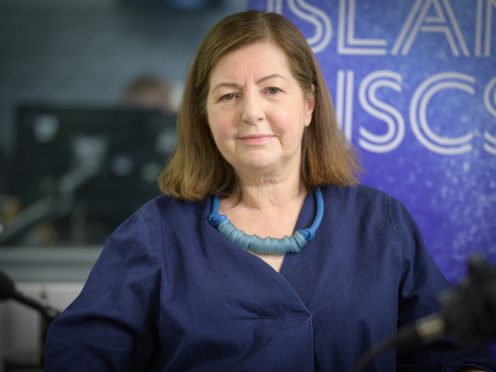Channel 4 head of news Dorothy Byrne has said the public are in danger of losing their “trust and faith in democracy”.
The veteran journalist said she was concerned by the public’s “low opinion” of politicians.
Byrne described the Prime Minister as a “known liar” during her withering MacTaggart Lecture at the Edinburgh TV Festival last August.

Appearing on Desert Island Discs, she said: “My job is to speak truth to power and my concern about politicians not telling the truth is not some eccentric view of my own – it is one shared by the British people.
“It was really depressing when we surveyed 2,000 voters in the election campaign and only 10% said that they believed that candidates were generally telling the truth.
“I think politicians have to listen – not just to me – but to the voters who are saying ‘We don’t trust you, because if the people stop trusting the politicians, they will lose their trust and faith in democracy.
“We have seen that happening in America, so if we want to preserve democracy, we have got to get people to trust the politicians again.”
The news chief, who was born in Paisley and raised in Blackpool, said the Conservative Party should be praised for winning a “fairly fought” election campaign.
But asked by host Lauren Laverne whether she thought democracy was in peril, she replied: “I do, yes.
“It doesn’t seem to people as if it is in peril because we have just had a general election and we have got a clear winner, and we should congratulate them because it was a fairly fought election, but I am concerned by the public’s low opinion of politicians.
“In fact, journalists don’t share the public’s low opinion of politicians because we meet them and we know that in fact they entered politics because they thought that they had something to give to society.
“But when politicians don’t come on to television, the most trusted medium, and explain their policies, and hold themselves accountable, and allow themselves to be challenged, I think that that is bad for democracy because the people who elected them want to hear them justify their policies and want to hear them stand up to scrutiny.”
Byrne used her MacTaggart Lecture to attack abusive men in the media and reveal that she had been sexually assaulted by a former colleague.

Recalling her time at the Granada TV company, she said: “Some men of power regularly assaulted women and everybody knew it and knew who they were.
“I don’t mean that all the men were dreadful at all. Most were fantastic. But there was a level of sexism and sexual assault that was accepted.”
The wide-ranging interview also touched on her Catholic upbringing in Blackpool and her experience of depression after breaking her leg while working as a VSO teacher in Nigeria.
She spoke about how, after her family moved to England as a young girl, she became “obsessed” with the idea she had committed “lots of sins” and had to die by starving herself.
“Nobody noticed and also I kept getting hungry so I did get thin but I didn’t starve to death, but I was so unhappy,” she said.
“I am now a happy person because I realised that I had borrowed the unhappiness of the people around me.”
She also recalled how she broke into journalism by penning a humorous letter to 50 local newspaper editors in the style of a Reader’s Digest advertisement.
She received only one response, from Rex Pardoe, editor of the Walthamstow Forest Guardian, but this secured her a job.
Byrne said she was “one of those women who nearly forgot to have a baby” before she became pregnant by donor insemination in her mid-40s, eventually giving birth to a girl named Hetty.
The interview also saw her discuss her experience of giant cell arteritis, which can sometimes cause blindness, and urged wider recognition of the condition.
Byrne selected tracks including US punk band Pere Ubu’s Non-Alignment Pact, Handel’s Messiah and Fela Kuti’s Teacher Don’t Teach Me Nonsense.
Her luxury object was the voice of broadcaster Melvyn Bragg and for her book, she chose a selection of physics textbooks.
Desert Island Discs airs on BBC Radio 4 and BBC Sounds on Sunday at 11.15am.
